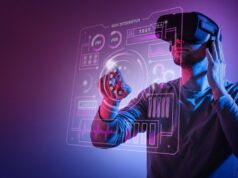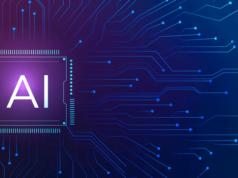Quantum AI: Bridging the Gap between Quantum Computing and Artificial Intelligence
Amidst the solid territory of innovation, the convergence of quantum computing and man-made consciousness (artificial intelligence) is turning into an inspiration for change. Quantum AI, an interdisciplinary space that amalgamates the standards of quantum computing with the limitations of computerized reasoning, remains at the front of noteworthy savvy and imaginative turns of events. This brilliant coordinated effort conveys the likelihood of reshaping businesses, tending to multifaceted hardships, and opening novel wildernesses in calculation. This article intends to examine the key ideas, continuous progressions, and predictable uses of Quantum AI.
Understanding Quantum AI
Quantum Computing: A Paradigm Shift
At the point of convergence of Quantum AI lies quantum computing, a revolutionary procedure for dealing with computation that uses the principles of quantum mechanics. Not at all like traditional computers, which use portions of address either a 0 or a 1, quantum workstations use quantum bits or qubits. Qubits can exist in different expressions meanwhile, because of superposition, and can be gotten, enabling a serious degree of parallelism in computation. This exceptional property licenses quantum computers to direct gigantic proportions of information in the equivalent, promising exponential speedup for such issues
Artificial Intelligence: The Rise of Smart Machines
Conversely, artificial intelligence endeavors to foster machines equipped for undertaking errands that normally demand human intelligence. This includes unequivocal thinking, learning, perception, and language understanding. Old-style computers have made fundamental strides in AI, for any situation, their processing power is confined for certain mind-boggling undertakings. Quantum AI tries to conquer these limitations by harnessing the force of quantum computing to redesign AI limits.
Quantum Machine Learning and Algorithms
Quantum Machine Learning: Unleashing Quantum Power
Quantum machine learning, within the domain of quantum AI, investigates the incorporation of quantum computing strategies into the surface of machine learning algorithms. Traditional machine learning algorithms face hardships while dealing with immense datasets and complex issues. QML offers the potential for basic speedup in training and inference, providing one more street for tackling intricate AI issues.
Quantum Algorithms: Cracking the Code
A few quantum algorithms have been made to exploit the interesting furthest reaches of quantum workstations. Shor’s calculation, for instance, compromises current encryption techniques by accommodatingly factoring huge numbers — an errand that would take old-style workstations an outlandish proportion of the time. Grover’s calculation, on the other hand, can glance through unsorted databases quadratically faster than old-style algorithms. These breakthroughs highlight the transformative force of quantum algorithms in solving issues that were once considered intractable.
Quantum Computing Applications and Breakthroughs
Quantum Computing Applications: Real-World Impact
Quantum computing applications span a great range of industries. In finance, quantum algorithms can improve the portfolio of executives and upgrade risk examination. In coordinated factors, they can improve store network courses and asset allocation. In drug disclosure, quantum computing can mimic sub-atomic interactions with uncommon precision, expediting the development of new medications. These applications highlight the capability of quantum computing to reshape industries and address difficulties that were beforehand insurmountable.
Quantum Computing Breakthroughs: Paving the Way Forward
The field of quantum computing has seen basic breakthroughs lately. Quantum supreme quality, a milestone achieved when a quantum PC performs an errand faster than most great old-style laptops, was demonstrated by Google’s Sycamore processor. This achievement signified a turning point in quantum computing, showcasing beating traditional accomplices in unambiguous applications potential. Researchers in general are at present focused on building upon this forward jump to make quantum computing more sensible and available.
Quantum AI Research and Integration with Artificial Intelligence
Quantum AI Research: A Collaborative Endeavor
Quantum AI research is a dynamic and helpful field where researchers and engineers coordinate to investigate reasonable collaborations between quantum computing and artificial intelligence. Researchers are investigating novel algorithms, optimization techniques, and mutt models that integrate quantum and old-style computing components to update AI performance. This agreeable soul is basic in addressing the perplexing challenges at the intersection of quantum computing and AI.
AI and Quantum Computing Integration: The Power Duo
The integration of AI and quantum computing is a brand name progression in the mission for considerably more wonderful and suitable computing structures. Quantum AI aims to use quantum computing’s parallelism to speed up AI training and inference errands. Machine learning models, especially those involving complex optimization issues, stand to profit from the quantum advantage. The collaboration between these two cutting-edge advances holds the best way to deal with unlocking additional entryways in AI research and development.
Quantum Computing Advancements and Trends
Quantum Computing Advancements: Looking Ahead
As quantum computing continues to prompt, researchers are working on developing shortcoming-forgiving quantum PCs. Overcoming the inherent delicacy of qubits and mitigating goofs is imperative for making quantum computing more strong and commonsense for broad use. Advancements in quantum equipment, programming, and stumble correction frameworks are paving the way for the exceptional new generation of quantum PCs that can handle increasingly complex issues.
Quantum Computing Trends: Shaping the Future
A few trends are shaping the direction of quantum computing. Increased investment from both public and confidential areas is driving research and development efforts. Collaborations among the scholarly community and industry are becoming more common, fostering a biological system that speeds up innovation. Additionally, the development of quantum distributed computing administrations permits researchers and businesses to get to quantum assets from a distance, democratizing admittance to this cutting-edge technology.
Quantum-Inspired Algorithms and Quantum Computing Impact on AI
Quantum-Inspired Algorithms: Bridging the Gap
While totally fledged quantum systems are still in the developmental stage, quantum-inspired algorithms are making waves in the domain of traditional computing. These algorithms reflect certain pieces of quantum computing, offering performance upgrades for unequivocal issues. Quantum-inspired algorithms go about as a framework, providing a short investigation of the potential advantages of irrefutable quantum computing for AI applications.
Quantum Computing Impact on AI: Unleashing Potential
The impact of quantum computing on AI is assorted. Quantum laptops prevail at solving optimization issues, a fundamental component of many machine learning algorithms. Undertakings, for instance, training complex brain organizations and optimizing decision-making cycles can benefit generally from the parallelism inherent in quantum computing. As quantum gear continues to propel, the integration of quantum computing into AI work processes holds the responsibility of achieving breakthroughs in AI research and development.
Quantum Computing in Data Science and Optimization for AI
Quantum Computing in Data Science: Transforming Analysis
Data science, a cornerstone of AI, involves analyzing immense datasets to extricate meaningful insights. Quantum computing’s capacity to handle information equally can essentially upgrade data examination undertakings. Quantum algorithms for data clustering, design recognition, and data optimization are being investigated to open additional opportunities in data science.
Quantum Computing Optimization for AI: Enhancing Efficiency
Optimization is a gigantic test in AI, and quantum computing could perhaps revolutionize this viewpoint. Quantum algorithms can favorably oversee optimization issues, leading to speedier training of machine learning models, better resource allocation, and further decision-making processes. The steady energy between quantum computing and AI optimization is a promising street for achieving even more momentous and strong AI structures.
Quantum Computing Use Cases in AI and Quantum AI Applications
Quantum Computing Use Cases in AI: Practical Applications
Quantum computing use cases in AI are different and impactful. Quantum algorithms can upgrade recommendation frameworks, empower more precise normal language processing, and improve complex AI models. The capacity of quantum PCs to handle enormous datasets and perform complex simulations opens up new roads for solving certifiable AI issues.
Quantum AI Applications: Exploring Frontiers
The possible applications of Quantum AI reach out beyond traditional AI domains. Quantum AI has the capacity to revolutionize online protection by breaking or enhancing encryption strategies. It can likewise contribute to the development of cutting edge AI-driven advanced mechanics, paving the way for additional intelligent and autonomous frameworks. Exploring these frontiers is fundamental for harnessing the maximum capacity of Quantum AI.
Conclusion: Quantum AI Development and Future Prospects
Quantum AI Development: A Journey Unfolding
The development of Quantum AI is an ongoing excursion separate by collaboration, innovation, and breakthroughs. As quantum computing technology creates, its integration with artificial intelligence will end up being more consistent, unlocking additional open doors for solving complex issues and advancing legitimate research.
In conclusion, Quantum AI tends to a convergence of two cutting-edge advancements — quantum computing and artificial intelligence — that hold the responsibility of unlocking wonderful computational power. The collaboration between quantum computing and AI is presently producing groundbreaking advancements, with implications for some industries. As Quantum AI continues to create, researchers and innovators are prepared to introduce one more time of computing, where the constraints of what is conceivable are continually pushed, and the impact on society is huge. The excursion of Quantum AI is one of exploration, collaboration, and the eager journey to understand the quantum domain to work on the capacities of artificial intelligence








